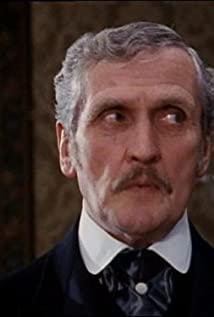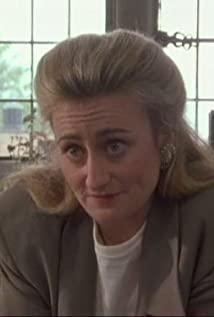"Perfume", the film is adapted from the international best-selling novel "Das Parfum-Die Geschichte eines Mörders" by German author Patrick Süskind (English translation Perfume: The Story of a Murderer, Perfume - A Killer's Tale).
Without spoilers, I want to talk about what I think is the theme of this magical film: the state of human needs/desires and the meaning of human existence.
The former is a relatively superficial theme in the film, and its main needs are aesthetics and love. The two overlap each other in the film, and their imagery is both a smell. When normal people appreciate beauty, they mainly rely on sight, hearing and touch, especially women/men: look at her/his delicate face, sweet voice, and delicate skin. Sense of smell will also be used, but after all, it is not as good as the first three. This feeling is so frequent (taste is also used, but mostly in erotic scenes). Because of his extraordinary sense of smell, the male protagonist Grenouille has entered a rich world of smells that are unimaginable for ordinary people. Since childhood, he has instinctively appreciated, enjoyed, and attracted to various smells. He has an extremely strong and insatiable longing for beautiful scents, and he frantically appreciates and explores wonderful scents. From this point on, Grenouille is an uncompromising artist, like Van Gogh in the visual world.
After accidentally killing the girl he fell in love with at first sight, Grenouille experimented frantically to create a perfect perfume to reproduce the ecstasy of the girl at that time. I think the perfect fragrance that Grenouille pursued was the latter The image of his mind being deformed and distorted. This is a very common psychological phenomenon. For example, when a person was young, he longed for a certain toy and could not get it. When he became an adult, he may have a strong possessive desire for all toys or the most expensive and delicate toys, becoming a An obsessive-compulsive collectivism; and if he couldn't afford that toy because he didn't have money at the time, he might have turned into a perverted thirst for money.
And the author certainly won't let the illogical artist protagonist think of this, and this place is doomed to Grenouille's tragic ending, because the reason why the girl's body fragrance is so charming is because it is mixed with love. Because Grenouille fell in love with the girl, her body fragrance was so wonderful to him; this is the same as in "The Little Prince" "The little prince said that because my rose is my rose, she is unique to me in the universe. rose". So Grenouille's great pilgrimage leads to a holy place that doesn't exist.
Another reason for Grenouille's strong pursuit of smell is "lack, so yearning!" This is very obvious in the episode when Grenouille finds in horror that he has no smell of his own in the cave. Having no scent of his own, he had a strong quest to create new, perfect scents. This is a simple understanding, it is the psychology of people "what they want, what they want"; poor beggars crave money; people who have been treated unfairly yearn for a just society, or strong power and status (this and the above mentioned Those who are inferior to their appearance are prone to have a strong desire for the beauty of their appearance.••••••
, and it actually symbolizes "people who are inferior to their own Perfection, so keep striving for perfection." The human nature. This kind of personality trait is most prominent in outstanding people, such as Leonardo da Vinci, Andersen •••••• This kind of inferiority complex in the bones of genius stems from the pursuit of perfect self, rather than comparison with others, it is a kind of Small self-esteem. There are two ways to get out of this kind of inferiority: one is to lower self-expectations and ridicule one's mediocrity, which is a kind of self-paralysis; the other is to constantly transform oneself and strive to get closer to perfect self. Of course, it is impossible for people to achieve complete perfection. In this state, so this pursuit itself has created great characters. (For the inferiority complex, see A. Adler (Alfred Adler's Psychological Theory on inferiority complex)
Grenouille later succeeded in creating magical perfumes - perfumes that inspired "love". At this point he was successful and then really failed. His perfume can indeed inspire the deepest and most craving love in people's hearts. This is very exaggerated in the movie. After the father who hates killing his daughter smells the perfume, he inspires love for his son who died in his early years. actually hugs the murderer as a son; the bishop smells the perfume and shouts that Grenouille is an angel; the common people smell the perfume, hug each other, make love; (here, some people are shocked by the group sex scene in the movie , that's okay, it's not common after all; but if you feel disgusted, you're a bit of a mindless idiot. Sex with heart love is often regarded as a sacred way of expressing love in contemporary Western culture. In the film, the masses are perfumed by perfume Inspiring a desire for love and then expressing it in a way they consider sacred is perfectly logical. And the plot itself is a dramatic expression of the magic of perfume, given the film is set in 18th-century France, when rural France was feudal The level is still very high, and the restraint of medieval ascetic morality is still very strong. Therefore, the plot itself alludes to the idea that "the pursuit of love can ultimately override morality", especially the fact that the bishop also has sex, which is obviously a reference to ascetic religious morality. To be more practical, this is also an eye-catching business method. People who judge with traditional moral values without thinking about the reasons at all are a wretched and mindless moral gentleman.)
However, Grenouille failed at the same time . . Because the love his perfume evokes is a love that is drawn from the individual. As mentioned earlier, "This fragrance inspires the deepest and most craving love in a person's heart", the fragrance makes everyone affected find someone to release this love, even the father whose daughter was killed sees Grenouille as To release the love for his son for his son, except himself! The result of this effect on him was to evoke the memory of the girl at the time, and made him realize that what he really longed for was that girl's love. If someone thinks that he is perverted and yearns for the body fragrance of that girl, they can carefully re-read the episodes he recalled. He didn't smell her scent at all, but hugged and kissed like ordinary people. So the explanation is: "Behind the obsession with its body fragrance is love itself" I think it is reasonable.
So Grenouille understood that his magical perfume could not make him love and be loved, because the object of his love had passed away. The shattering of his desire for love finally made him choose to sum up his life. I don't know how the original text expressed it, but the movie's narration is so straightforward that it can't be more straightforward, for fear that the audience won't understand it. It feels like the director has serious concerns about the comprehension of some audience members.
The original line was: "there was only one thing the perfume could not do. It could not turn him into a person who could love and be loved like everyone else. So, to hell with it all. He thought. To hell with the world , with the perfume, with himself."
"There's only one thing perfume can't do, it can't make him love and be loved as a human being. So, 'To hell,' he thought.
'To hell with the world, Let the perfume go to hell, let him go to hell.'"
Therefore, the logic of condensing and purifying the theme of the film is: the
perfume murder case is the shell of the plot, and its motive is to create magical perfume;
and the pursuit of magical perfume, It is the refraction and deformation of its own desire for love; it also stems from the defect that it has no smell, which leads to its pursuit of the ultimate smell;
stripping off the specific image of love, its essence is human needs/desire; The entire film is both the protagonist Grenouille's obsessive dark pilgrimage to fulfill his craving. And as mentioned before, he finally found that his real desire was the love of a girl who was killed by himself, and found its unattainability, so he sought self-destruction.
Here we can chew on what Schopenhauer called "mankind was apparently doomed to vacillate eternally between the two extremes of distress and boredom." Understand that the dramatic character of Grenouille in the entire film is extreme "from boredom to pain, and then standing on both ends at the same time." Before meeting the girl, he struggled aimlessly in the tannery like a dog; Afterwards, it was extremely painful because the smell could not be reproduced; finally, after successfully developing a magical perfume, he found that true love could not be reproduced, so he faced the pain that his (love) needs could never be fulfilled, and the In boredom with no other needs. So he chose death to escape the predicament.
Another theme of the film is the meaning of human existence. Looking at the film from this perspective, the protagonist Grenouille found the meaning of his life since he decided to make perfume, and in the end, after he made perfume successfully and unsuccessfully, his meaning of existence died. If we say that a person is alive only if he has the meaning of existence. Grenouille died when he realized that he could no longer love the girl and be loved. That's why the ending is so terrifying, surprising, yet logical.
Grenouille's self-defined meaning of life in "Perfume" overlaps with the act of gratifying cravings, but the ending is tragic. Therefore, if you think about this film with a little philosophical thinking, "Perfume" is a reflection on the value of taking the realization of needs as the carrier of the meaning of life, that is, the realization of needs as the meaning of life. (Of course, the film omits the discussion of whether the realization of material needs is the meaning of life, and directly addresses the more advanced needs of love and aesthetics. I think the author thinks that the former is too simple, and he is too lazy to waste energy on it.)
The realization of needs is regarded as the meaning of life, and people are forever in the pain of unmet needs, and once realized, the meaning of life is like a leaf in a storm; either new needs are proposed, or, like Grenouille, Death seeks liberation. So we get the "pessimistic" philosophical conclusion that life is a tragedy.
(Here, "pessimism" is only used as a metaphor, because even if life is a tragedy, it is not equal to pessimism. For example, Schopenhauer thought that life was a tragedy, but he came to the conclusion of the "will" theory. It was originally intended to be surpassed by man, that is, the will; Nietzsche's "tragicism" gave birth to the "superman philosophy", a philosophy with incomparable vitality.)
I will not discuss it in more depth here, but only briefly mention a few points. , hoping to stimulate the thinking of those who are interested.
In addition to these two major themes, the loss of collective rationality caused by hatred and anger in the first part of the film is cruel; at the end, the collective chooses to amnesia, using the individual as a scapegoat to cover up the collective stupidity. These are also very interesting plots.
Overall, this movie is still very rich in content and has a bold and peculiar plot, which is very worth watching.
However, if you just don't think about it, you're too much to buy the pearls in return. Ruined good stuff.
View more about Perfume: The Story of a Murderer reviews











